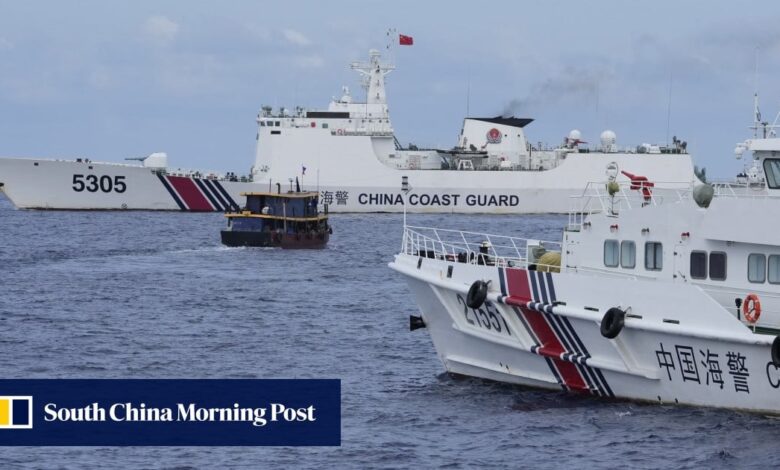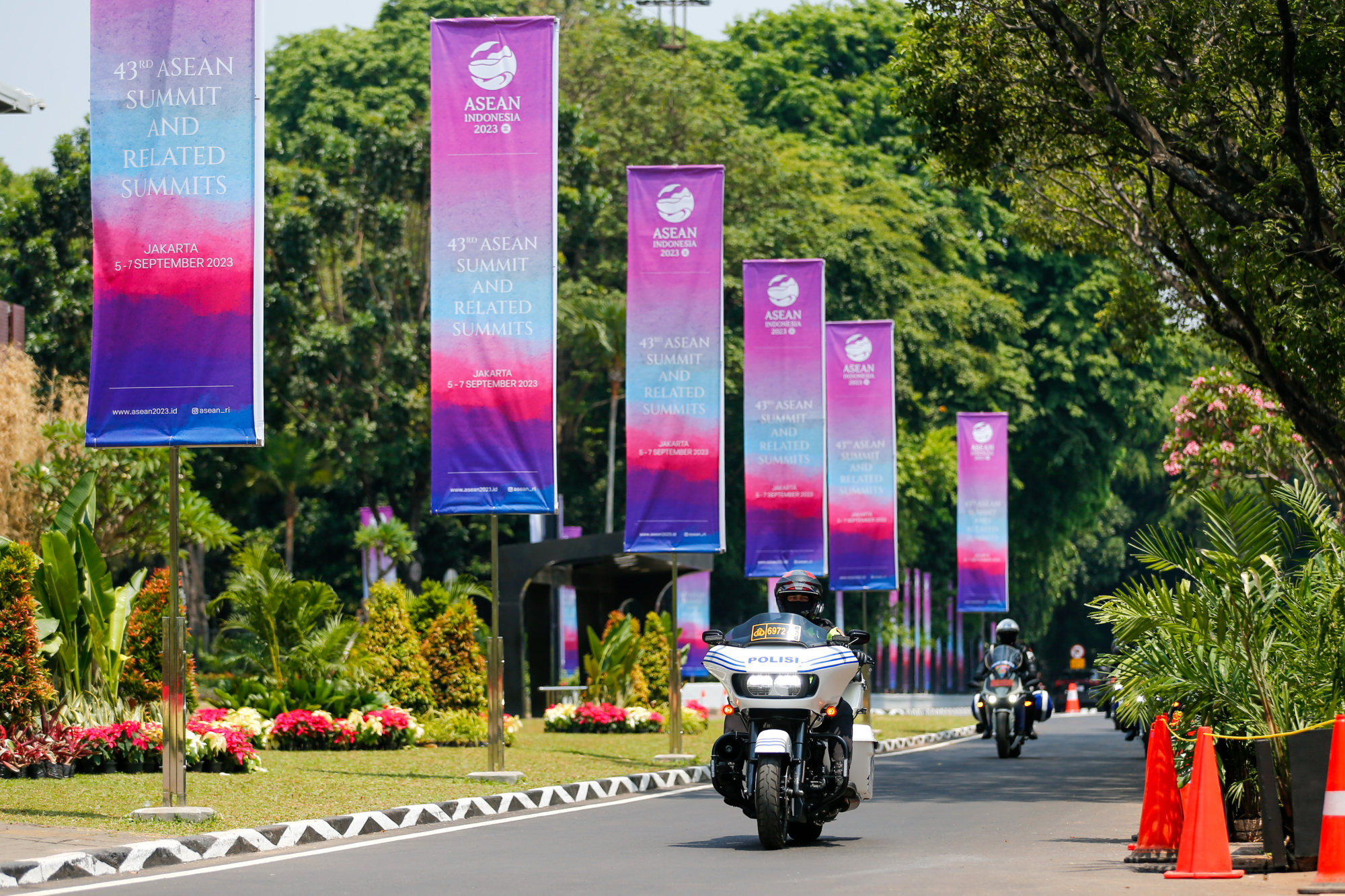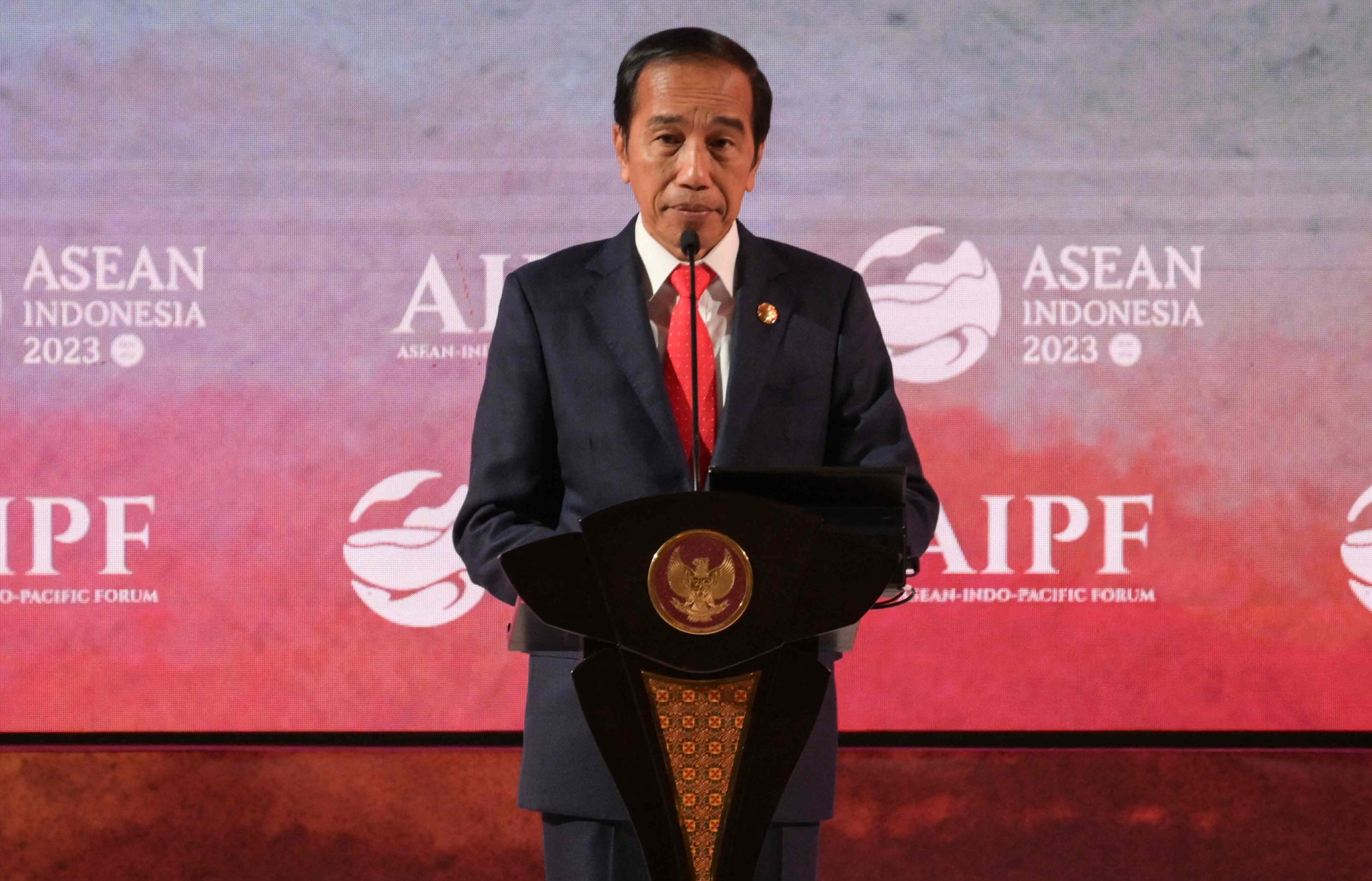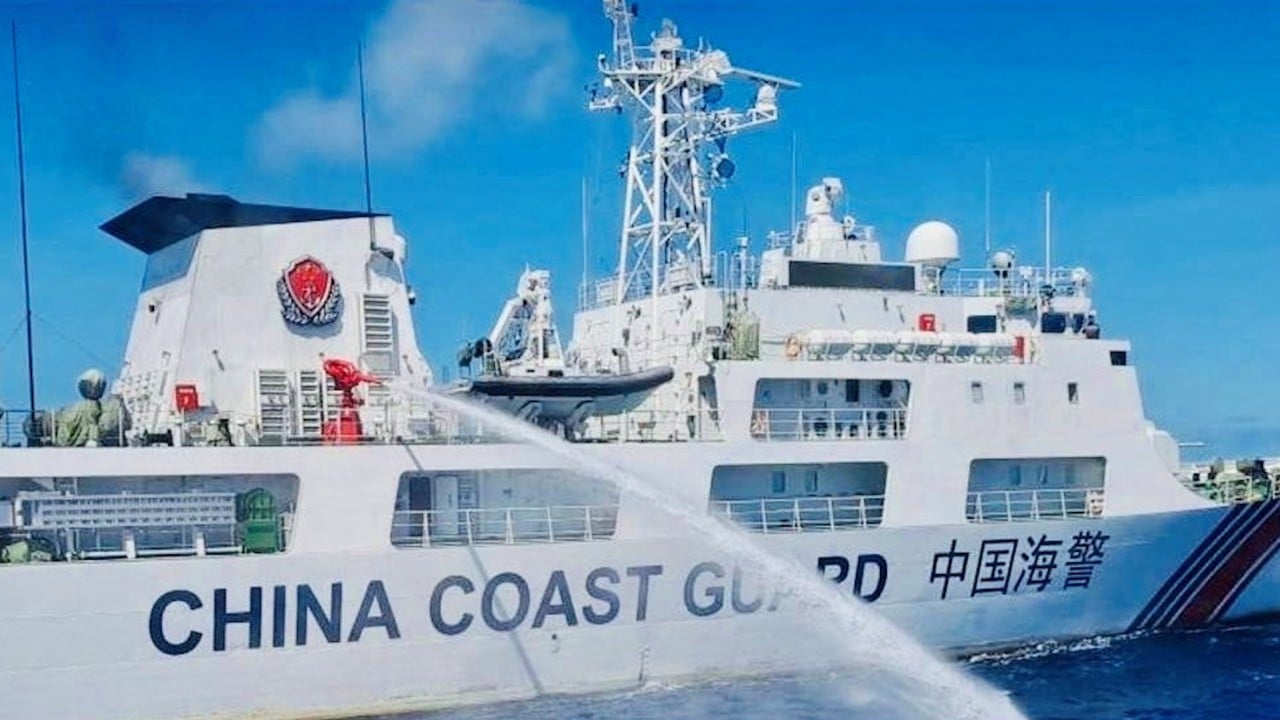South China Sea: Asean risks irrelevance from ‘damaging’ non-response to tensions

[ad_1]
“Otherwise, Asean will lose its relevance. We have to be prepared to engage all sides actively, in mutually beneficial ways,” he said.
US slams ‘unlawful’ China map showing claims over South China Sea
US slams ‘unlawful’ China map showing claims over South China Sea
Sharon Seah, senior fellow and coordinator at the ISEAS-Yusof Ishak Institute’s Asean Studies Centre in Singapore, said if the bloc did not issue a statement on the South China Sea, it would show itself to be irrelevant to its own members.
“Indonesia is trying hard to assert ‘Asean centrality’ and the chairmanship theme is ‘Asean Matters’, hence it will be a huge miss if Asean cannot even issue a statement, at the very least to call for the upholding of international law,” said Seah, referring to a central tenet of the bloc that it must be the dominant regional platform to overcome common challenges and engage with external powers.
“A non-response is not an option at this point.”
Seah noted that while members without direct stakes in the South China Sea could choose to keep silent, “not speaking up for adherence to international law will be damaging for everyone” in the long run.
China’s foreign minister warns Asean ‘external forces’ are ‘sowing discord’
China’s foreign minister warns Asean ‘external forces’ are ‘sowing discord’
This, he said, would allow these countries to “score easy points with China by not pushing the issue” while claimant states preferring a tougher stance were in the minority.
“Another reason is that those who would like to see a tougher stance, such as Brunei, Malaysia, the Philippines and Vietnam, have their own conflicting claims. Resolving them first would facilitate a stronger, unified position, but this appears unlikely in the near term,” Marston said.

Noting that the ball was in Asean’s court, Hanh Nguyen, a PhD researcher at the Australian National University and research fellow at the Yokosuka Council on Asia Pacific Studies in Japan, said the bloc must decide how to respond.
“A strong condemnation in the joint statement will demonstrate potential shifts in how the region collectively perceives China,” Hanh said, adding that this would involve “a lot of debates and bargaining” among Asean members.
A strong condemnation in the joint statement will demonstrate potential shifts in how the region collectively perceives China
Ahead of the visit, China’s foreign ministry spokeswoman Mao Ning called on the US to “abandon the Cold War mentality” and not “undermine regional peace, stability, development and prosperity”.
On Sunday, Brunei issued a statement reiterating its commitment to maintaining peace, stability and security in the South China Sea.
The statement said it was essential that questions of maritime delimitation be agreed upon in accordance with provisions and procedures under the United Nations Convention on the Law of the Sea (UNCLOS).
Describing the statement as “hedging”, Hanh said Brunei supported addressing the issues bilaterally – China’s preferred method for negotiations in the contested waterway – while other claimants supported internationalising disputes.
“At the same time, Brunei also called for disputes to be addressed in accordance with the provisions and procedures of UNCLOS, signalling that it is interested in a rules-based solution to the dispute,” she added.

Along with Widodo, seven other national leaders from the bloc are attending this week’s biannual talks, which include various “Asean Plus One” talks with external partners, an “Asean Plus Three” meeting with China, Japan and South Korea, and a broader East Asia Summit that will be attended by representatives of most of the world’s major powers.
Malaysia joins India in rejecting new China map claim ahead of G20 summit
Malaysia joins India in rejecting new China map claim ahead of G20 summit
[ad_2]
Source link





